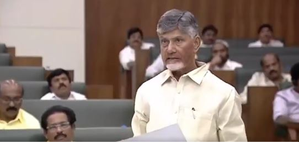Excise policy case: Delhi court extends Sanjay Singh’s judicial custody till Nov 24 (Ld)
New Delhi, Nov 10 (IANS) A Delhi court on Friday extended the judicial custody of AAP Rajya Sabha member Sanjay Singh by 14 days in connection with a money laundering case into the now-scrapped excise policy.
He was produced before Special Judge M.K. Nagpal of Rouse Avenue Court on expiry of his previously granted 14-day judicial custody.
The judge also allowed Singh to sign some documents related to development work as a Member of Parliament.
The judge directed the authorities concerned to produce him before a court in Punjab after it was informed that a production warrant had been received from a court in Amritsar, Punjab, in a defamation case there.
In the previous hearing, Judge Nagpal had allowed Singh to sign certain cheques as he requested to do so for his family expenses, and other work he is obliged to do as a Member of Parliament.
The concerned jail authorities were directed to ensure proper treatment to Singh, including from his private doctor. “Court sees no reason to refuse private treatment to the accused. Hence, the jail superintendent concerned is directed to ensure the appropriate treatment,” the judge had said.
On Friday, Judge Nagpal extended Singh’s judicial custody till November 24.
Singh, who had moved the Delhi High Court against his arrest and remand, was denied any relief as Justice Swarna Kanta Sharma dismissed his plea calling it premature. Singh then moved the Supreme Court against the High Court order that upheld his arrest and remand by the Enforcement Directorate (ED).
On October 13, Singh had told Judge Nagpal that the ED has become an ‘entertainment department’. The judge had directed him not to discuss unrelated matters or give speeches inside the court, or he will ask for his production through video conferencing from now on.
The financial probe agency on October 4 arrested Singh after carrying out searches at his residence in the North Avenue area. Singh was arrested under Sections of the Prevention of Money Laundering Act (PMLA).
–IANS
spr/sha



